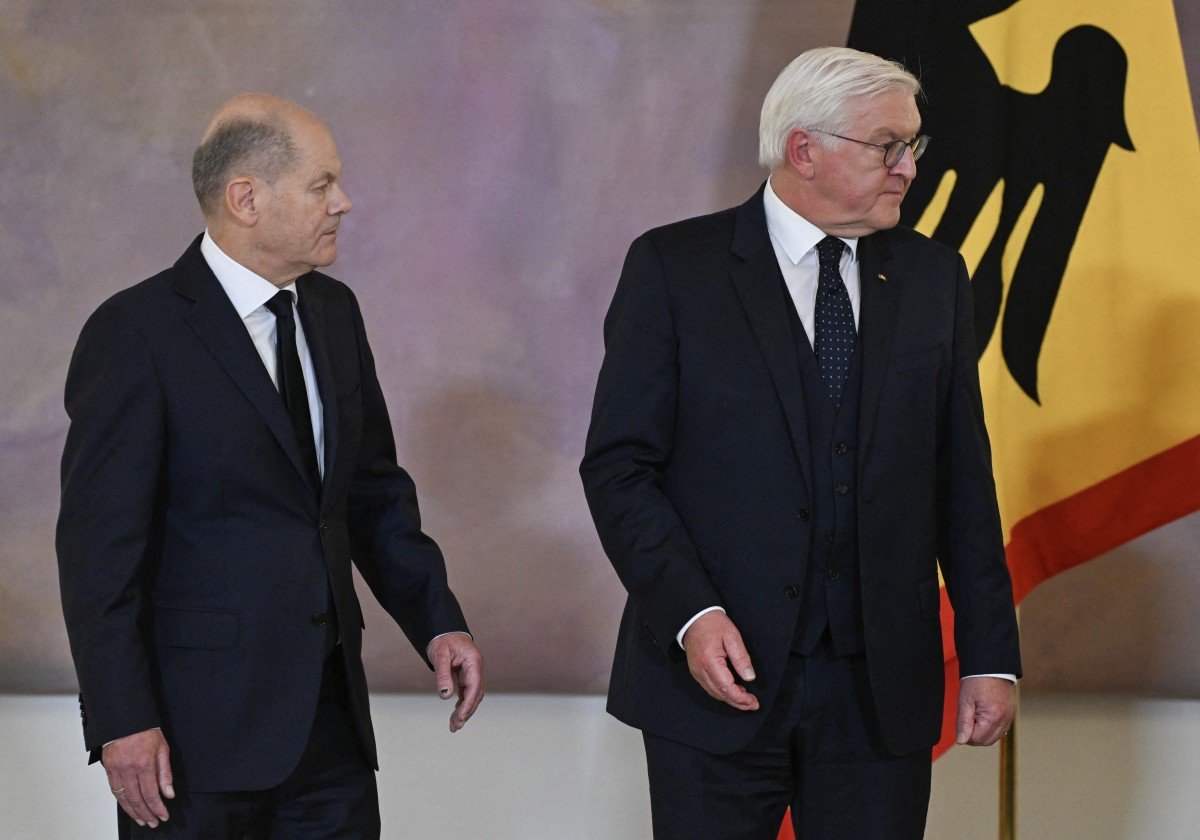The restart avoids — at least for now — what officials had described as a “nightmare scenario” for Europe’s largest economy, with impact throughout the continent and around the world.
But German officials argued there was no reason the flow shouldn’t return to full capacity. And they accused Russian President Vladimir Putin of using gas as leverage against Western countries backing Ukraine, keeping Europe in a state of continuous uncertainty.
Despite a rush to diversify, Germany depends on Russia for about a third of its gas supply, and France for about a fifth.
Germany needs to be prepared for gas flows to be reduced in the future, Economy and Climate Minister Robert Habeck said Thursday.
“Putin aims to rattle us, drive up prices, divide society and weaken the support for Ukraine,” he said.
“We do not bow to this and instead counter it with concentrated and consistent action,” he added, unveiling a new set of energy-saving measures. “We take precautions to get us through winter.”
Those include plans to make up for gas shortages by burning more lignite, known as “brown coal,” one of the most environmentally damaging ways to generate energy.
At 40 percent, the gas level in the Nord Stream pipeline on Thursday morning was back to where it was when Russian state energy company Gazprom cut the supply in June, citing problems with equipment.
In view of the “missing” 60 percent and ongoing political instability, there is “no reason to sound the all-clear,” tweeted Klaus Müller, head of Germany’s energy regulator, the Federal Network Agency.
“Does that apply to tomorrow, does that apply to the day after tomorrow?” he said of the gas flow in additional comments to German television. “After President Putin’s statements, one must have doubts.”
Although Putin has claimed he will ensure supplies to Europe, he warned Wednesday that equipment issues could contribute to future disruptions. One pumping unit is out of order as a result of a “crumbling” interior lining, he told reporters, Reuters reported, adding that another turbine needed to be sent for repairs next week.
The Russian leader is “the opposite of a guarantor of energy security,” Habeck said. “It’s obviously a strategy of Putin to use energy as a political pawn.”
As it has cut supplies, Gazprom has sought to invoke “force majeure” — a legal provision used to release a party from contractual commitments in the case of extreme events such as war, storms or fires.
With prices high and gas storage levels relatively low, the European Commission urged European Union countries Wednesday to reduce their gas use over the winter by 15 percent.
Germany, one of the countries most exposed because of its dependence on Russian energy, is already in the second phase of a gas crisis plan.
German consumers are being urged to save energy any way they can, including taking cold showers and turning off lights. Hot water has been turned off in municipal buildings and fountains lie still. Some residential landlords have said they might turn down the heat this winter.
The government’s hope is that it won’t have to take the final drastic step in its contingency planning: intervention in the market to deny gas supplies to certain industries. Officials have been scrambling to increase the country’s gas storage ahead of winter, and on Thursday they announced new targets: to have stocks at 75 percent of capacity by Sept. 1 and 95 percent by Nov. 1.
New energy-saving measures include a mandate for companies to immediately introduce economically feasible ways to cut usage. Where possible, firms should organize block vacations for employees so that offices can be closed. Remote work is also encouraged, Habeck said.
European Commission President Ursula von der Leyen accused Russia of “blackmail” as she unveiled the E.U.-wide rationing proposal Wednesday. Whether it’s a partial gas cutoff or a major one, she said, “Europe needs to be ready.”
While uncertainty remains, some analysts are skeptical that Putin will completely cut supplies. “Russia from the economic perspective needs the money,” said Claudia Kemfert, head of energy, transportation and environment at the German Institute of Economic Research. “Also, they want to control the market and do what they can to put pressure on Germany and Europe. If there’s no gas, they can’t do it.”
Germany has tried to eliminate any pretexts Russia might use for shutting off supplies. Earlier this month, it urged Canada to skirt its own sanctions to return a turbine for the Nord Stream pipeline that had been stranded in Montreal so that Moscow could not cite it as an excuse for keeping the gas from flowing.




















Discussion about this post